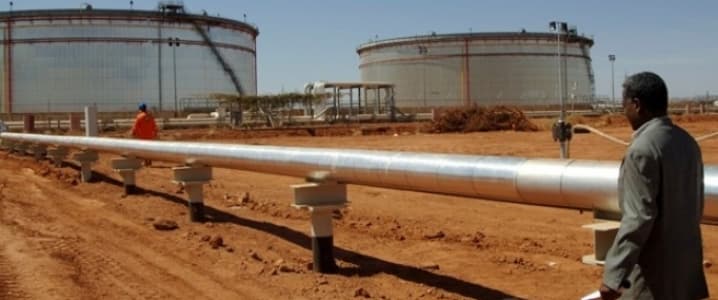South Sudan’s crude oil exports through Port Sudan, the army’s de facto wartime capital on the Red Sea, have resumed weeks after drone attacks targeted key facilities, officials confirmed Tuesday.
Last month, Sudan’s army-aligned government ordered energy firms to prepare to halt shipments of South Sudanese crude—a major blow to its landlocked neighbor, which relies on Sudan for oil exports and derives over 90% of its revenue from petroleum.
However, a senior Sudanese diplomat told Radio Tamazuj Tuesday that technical teams from both countries addressed the damage and restarted oil exports through Port Sudan.
Mubarak Mahjoub Musa, Sudan’s deputy ambassador to South Sudan, said crude oil production has resumed after repairs to the damaged facilities in Port Sudan.
“We have [had production back] for nearly a month now—I cannot recall the exact date, but operations are running smoothly,” Musa said. “The damage was repaired through joint technical committees between Juba and Port Sudan. I can confirm everything is functioning.”
South Sudanese officials did not immediately comment.
However, a member of the Nilepet Workers Union, Nancy Malir, confirmed the resumption of production but criticized unpaid wages despite the restart.
“Our salaries were cut by 70%, and management promised arrears once production resumed, but nothing has been paid,” Malir said.
Employees of Nilepet, a government-owned oil and gas company in South Sudan, are currently on strike over unpaid salaries and benefits.
Last month, a key pump station and fuel depot in army-controlled Sudan were reportedly struck by the paramilitary Rapid Support Forces (RSF), which has targeted government infrastructure nationwide, disrupting electricity and fuel supplies.
The conflict between Sudan’s army and the RSF, which began in April 2023, has killed tens of thousands, displaced 13 million people, and destabilized parts of East Africa.
South Sudan’s oil exports—currently estimated at 110,000 barrels per day—are typically shipped via Port Sudan, with Sudan taking transit fees.
Exports had only resumed in January after a yearlong suspension due to pipeline damage from earlier clashes.




